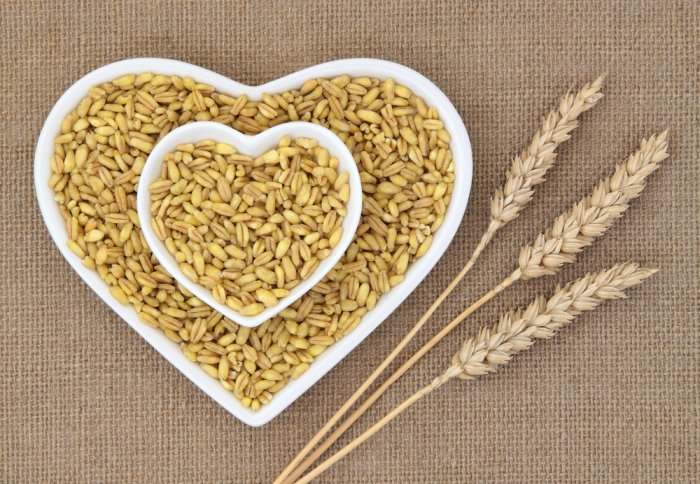Higher intake of whole grains associated with reduced risk of diseases and death
by Kate Wighton

A higher intake of whole grain foods is associated with reduced risk of cardiovascular disease and cancer, suggests study by Imperial College London.
The findings, published in The BMJ, also show a lower risk of death from a range of diseases.
These include lower risks of coronary heart disease and cardiovascular disease overall, as well as deaths from all causes and specific diseases including stroke, cancer, diabetes, infectious and respiratory diseases.
The international team of researchers, led by Dr Dagfinn Aune, from the School of Public Health at Imperial, say these “results strongly support dietary recommendations to increase intake of whole grain foods in the general population to reduce risk of chronic diseases and premature mortality.
These results strongly support dietary recommendations to increase intake of whole grain foods
– Dr Dagfinn Aune
Study author
The greatest benefit was seen for people who increased from no intake of whole grain to two servings per day. This is equivalent to 32g per day, such as 32g of whole grain wheat or 60g product per day, such as 60g of whole grain wheat bread.
Further reductions in risks were observed up to 7.5 servings a day, equivalent to 225g per day of whole grain products, and suggest additional benefits at higher intakes.
A large body of evidence has emerged on the health benefits of whole grain foods over the last 10-15 years. Whole grains are defined as cereal grains where all parts of the grain – called the germ, endosperm and bran, are used. They include whole wheat and oats. Grains are one of the major staple foods worldwide and provide on average 56 per cent of energy intake and 50 per cent of protein intake.
But recommendations on the daily amount and types of whole grain foods needed to reduce risk of chronic disease and mortality have often been unclear or inconsistent.
So the researchers carried out a systematic review and meta-analysis of 45 published studies on whole grain consumption in relation to several health outcomes and all cause mortality.
They included more than 7,000 cases of coronary heart disease, 2,000 cases of stroke, 26,000 cases of cardiovascular disease, 34,000 deaths from cancer, and 100,000 deaths among 700,000 participants.
Yhey found reductions in the relative risk of coronary heart disease (19%), cardiovascular disease (22%), all cause mortality (17%), and mortality from stroke (14%), cancer (15%), respiratory disease (22%), infectious disease (26%), and diabetes (51%) per 90g per day of whole grain product (one serving equals 30g of whole grain product).
Reductions in risks of cardiovascular disease and all cause mortality were associated with intake of whole grain bread, whole grain breakfast cereals, and added bran, as well as total intake of bread and breakfast cereals. There was little evidence of an association with intake of refined grains, white rice, total rice or other grains.
Few people may have total grain intake of three or more servings a day, so the authors recommend “increasing intake of whole grains, and as much as possible to choose whole grains rather than refined grains."
Systematic reviews and meta-analyses involving observational research are useful for pulling evidence together, but cannot be used to draw conclusions about cause and effect.
They add that there are several limitations with their analyses, and call for more research to determine health benefits of different types of whole grain in different geographical regions, as most of the current evidence is from the US and fewer studies have been conducted in Europe, Asia and other regions.
"Whole grain consumption and risk of cardiovascular disease, cancer, and all cause and cause specific mortality: systematic review and dose-response meta-analysis of prospective studies" by Dagfinn et al. is published in The BMJ
Article text (excluding photos or graphics) © Imperial College London.
Photos and graphics subject to third party copyright used with permission or © Imperial College London.
Reporter
Kate Wighton
Communications Division